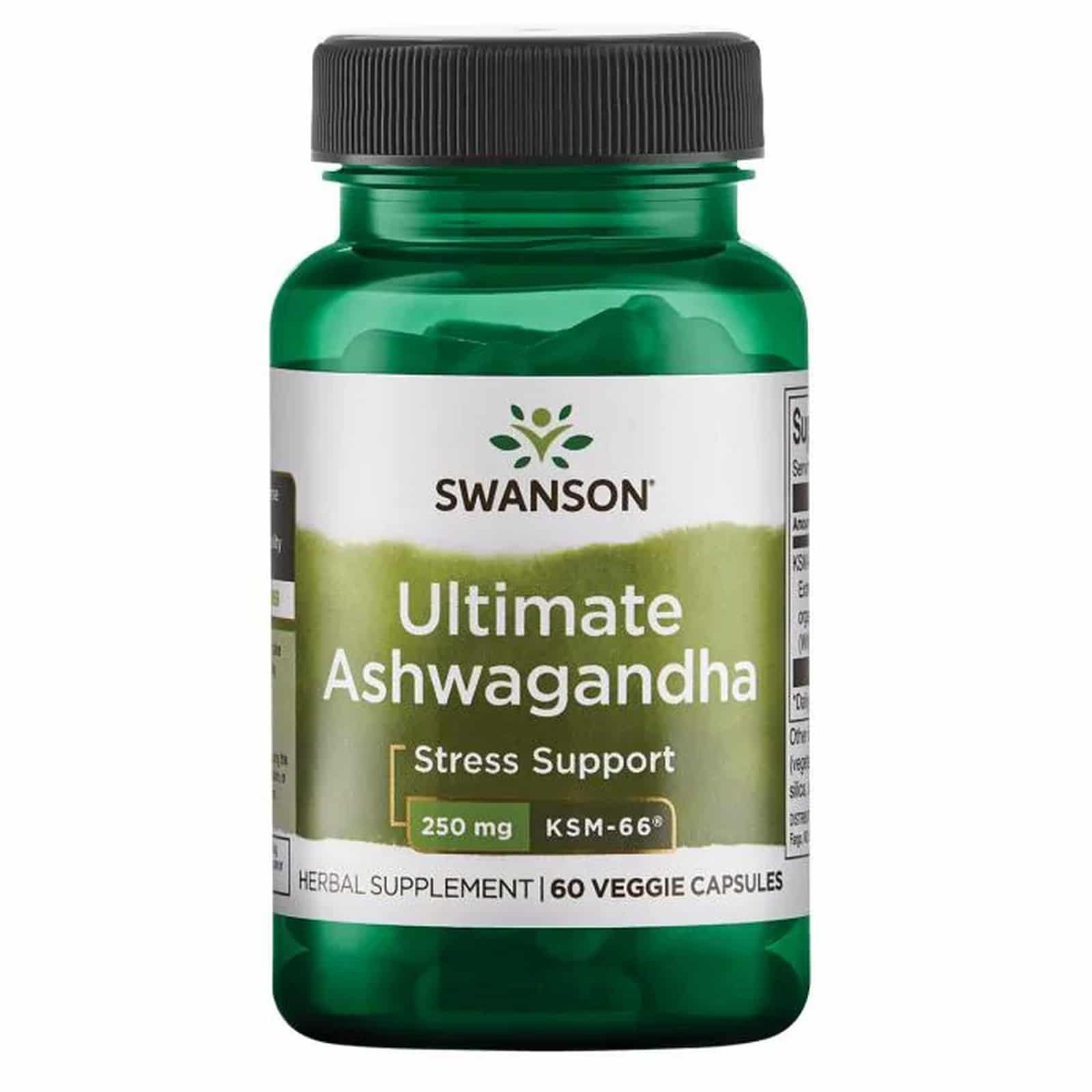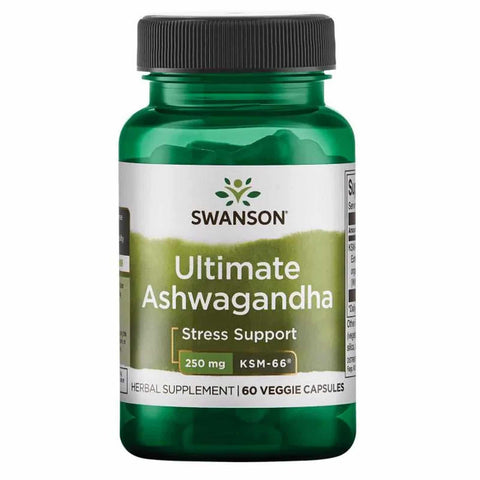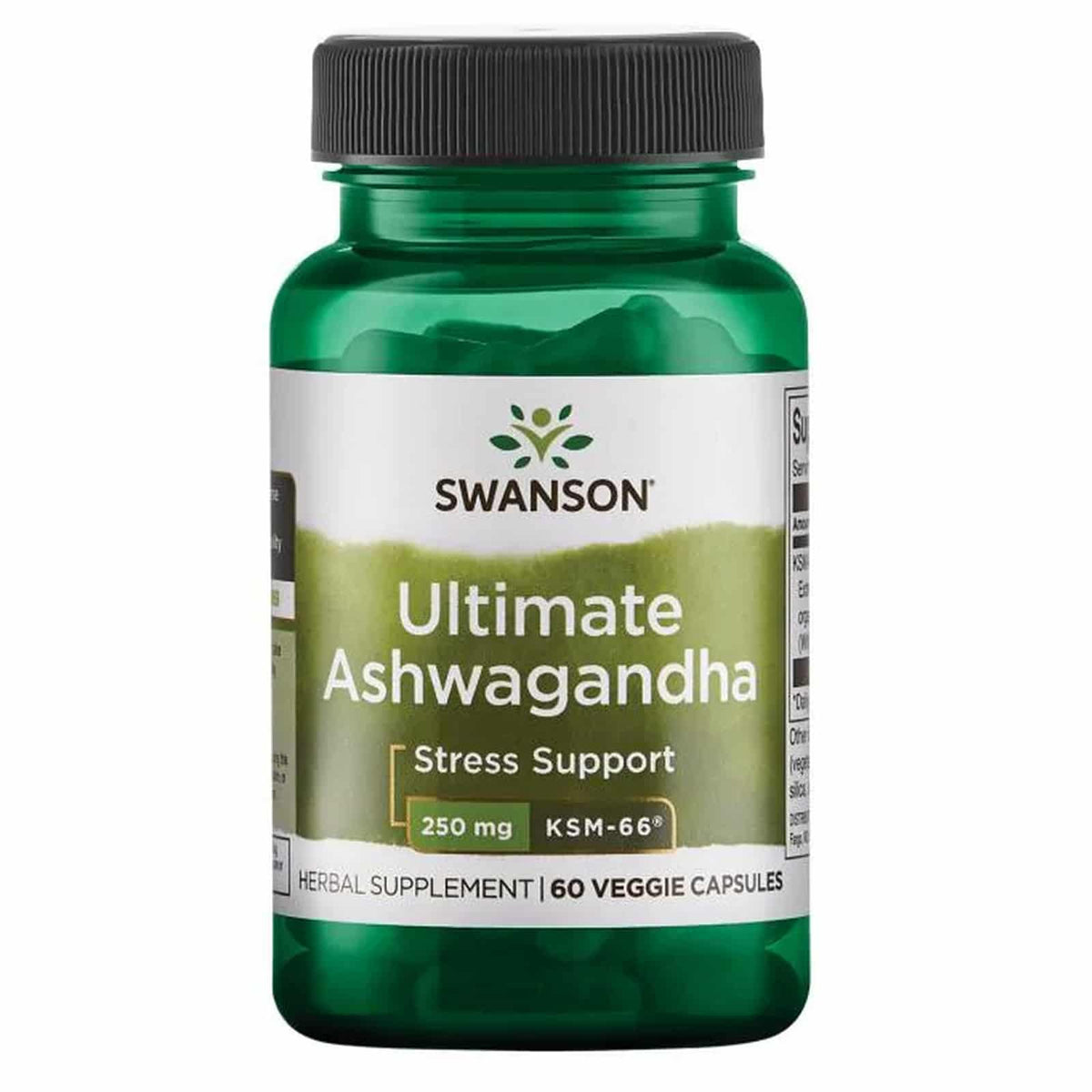Can synergize with
Label

Product Description
Ashwagandha, or Whitania somnifera, is one of the so-called "adaptogen" plants, that is to say that they have the property of helping the body to adapt to the various stresses that affect it. This plant is widely used in Ayurvedic medicine (see Reference 1).
In view of its adaptogenic properties, Ashwagandha will be either stimulating or relaxing as it helps your body adapt to the context it is facing. Ashwagandha is increasingly popular in our country. Its growing popularity is the result of a wide spectrum of physiological actions within our body.
A list of so-called "pending" health claims has also been drawn up at the regulatory level. The term "pending" means that it can be used under conditions to provide evidence for the consumer.
➪ Aswangandha can help the body cope with stress (pending)
A prospective, randomized, double-blind, placebo-controlled study: 64 subjects with a history of chronic stress were recruited into this study. Of these, 30 taken one capsule twice a day, each capsule contained 300mg of high concentration full-spectrum extract from the root of the Ashwagandha plant. Dosage: 600mg of Ashwangandha per day, for 60 days. A reduction in perceived stress was shown (assessment by the Perceived Stress Scale: PSS questionnaire) as well as a reduction in serum cortisol levels (difference between T0, at the start of the study and at T60, at the end of the study). 'study).
A Randomized Controlled Trial: Employees with Moderate to Severe Anxiety for More Than 6 Weeks Were Randomized by Age and Gender to Receive Care naturopathy (NC) (n = 41) or standardized psychotherapy (PT) intervention (n = 40) over a 12-week period. Participants in the NC group received dietary counseling, deep breathing relaxation techniques, a standard multivitamin, and the herbal medicine, ashwagandha (Withania somnifera) (Dosage:600mg in two doses of 300mg standardized to 1.5% with anolides, prepared from the root). The PT intervention received psychotherapy and matched deep breathing relaxation techniques and placebo. Results: Both NC and PT resulted in significant improvements in patient anxiety. The group comparison demonstrated a significant decrease in anxiety levels in the NC group compared to the PT group. Significant improvements in secondary measures of quality of life were also observed in the NC group compared to the PT group.
A double-blind placebo-controlled study: 39 subjects with anxiety disorders of which 20 received the drug and 19 received the placebo. Dosage: 2 tablets of 250mg of Ashwagandha twice a day or 1000mg in total per day. After 6 weeks, a significant number of patients who received the ethanolic extract of ashwangandha met the a priori response criteria in the group receiving the drug (88.2%) compared to the placebo group (50%).
Another study finding that Ashwagandha supplementation can improve the physiological, cognitive and psychological effects of stress. study performed on healthy adults (n=43 females and n=17 males; mean age=34.41 years) who reported experiencing perceived stress were randomized to the following groups: Ashwagandha (400 mg/ d), Ashwagandha (225 mg/d) and placebo for 30 days.
➪ Aswangandha helps maintain sperm count and sperm motility (pending)
A controlled clinical trial showed an improvement in the quality of sperm via an increase in their number and their motility. Oxidative stress that can harm sperm has also been reduced. The dosage was 5g of root powder per day for 3 months.
In addition, a pilot study has shown an improvement in sexual function in women. The dosage was 600mg daily for 8 weeks.
➪ Ashwangandha and sleep onset support (pending)
One randomized controlled trial: A total of 80 eligible participants, 40 in group A (healthy) and 40 in group B (insomnia). Dosage: 600mg (2x 300mg Ashwagandha) per day. Conclusion: This study confirms that Ashwagandha root extract can improve sleep quality and may help manage insomnia.
Another study identified the presence of triethylene glycol. This compound is an active sleep-inducing component, it is found in Ashwagandha leaves.
➪ Ashwangandha contributes to optimal mental and cognitive activity (pending)
A randomised controlled trial : 50 adults with mild cognitive impairment were treated with either ashwagandha root extract (Dosage: 300 mg twice daily: 600mg in total) or with a placebo for eight weeks. Conclusion: Ashwagandha may be effective in improving immediate and general memory in people with MCI as well as improving executive function, attention, and information processing speed.
Another study showed that taking 400 mg of ashwagandha improved some measures of executive function, helped maintain attention and increased short-term/working memory. This study involves 13 healthy volunteers.
Composition
Ashwagandha KSM66®
KSM-66® uses only the roots of the Ashwagandha plant. The KSM66® label comes from a family business founded with the sole mission of providing premium quality Ashwagandha. To be faithful to their mission, they believe it is necessary to remain close to the traditional practice of production.
Given that the leaves are abundant and easily accessible why does this label exclusively use the harder-to-obtain Ashwagandha roots?
- The Ashwagandha roots are consumed more than its leaves, so their safety is no longer demonstrated.
- Clinical studies focus primarily on the roots of Ashwagandha.
- Pharmacopoeial works focus only on the roots of Ashwagandha.
- Some European countries only allow the consumption of Ashwagandha roots.
KSM-66® is the finest Ashwagandha extract available on the world market today.
Nutritional information
Other Ingredients: Hypromellose (Vegetable Capsule), Rice Bran, Silica, Magnesium Stearate.

Advice for use: Start the treatment with one capsule of Ashwagandha in order to respect the principle of progressiveness for our body. If your organism reacts well, go to 2 capsules per day. For people for whom the plants would have a stimulating effect, it is preferable to take the 2 capsules in the morning.
We recommend taking this supplement for 3 weeks, then stopping for 1-2 weeks before resuming the cycle.
Warnings
Food supplements should be used as part of a healthy lifestyle and not be used as substitutes for a varied and balanced diet. Do not exceed the recommended daily dose. Keep out of the reach of young children
Advice of our professionals
@Tristank_coaching (https://tristank-coaching. com)
I have been testing this product for a few months on several students with cases of intense stress, the results are stunning! They adapt much better to stress than before, it has also improved the quality of their sleep and their physical appearance.
This supplementation has even greatly relieved people suffering from Eating Disorders (ED) by limiting compulsive eating related to stress and their stress itself.

@__steph_coach__www. steph ramos. en
Ashwagandha is an adaptogenic plant, it helps the body adapt to any stressful situation. It is one of the few plants with significant effects on the psychological and physiological aspects of the human organism!

-








 NOS PACKS
NOS PACKS
 Produits
Produits

 Santé
Santé
 Sport
Sport
 Cuisine saine
Cuisine saine
 Les produits Labz
Les produits Labz









